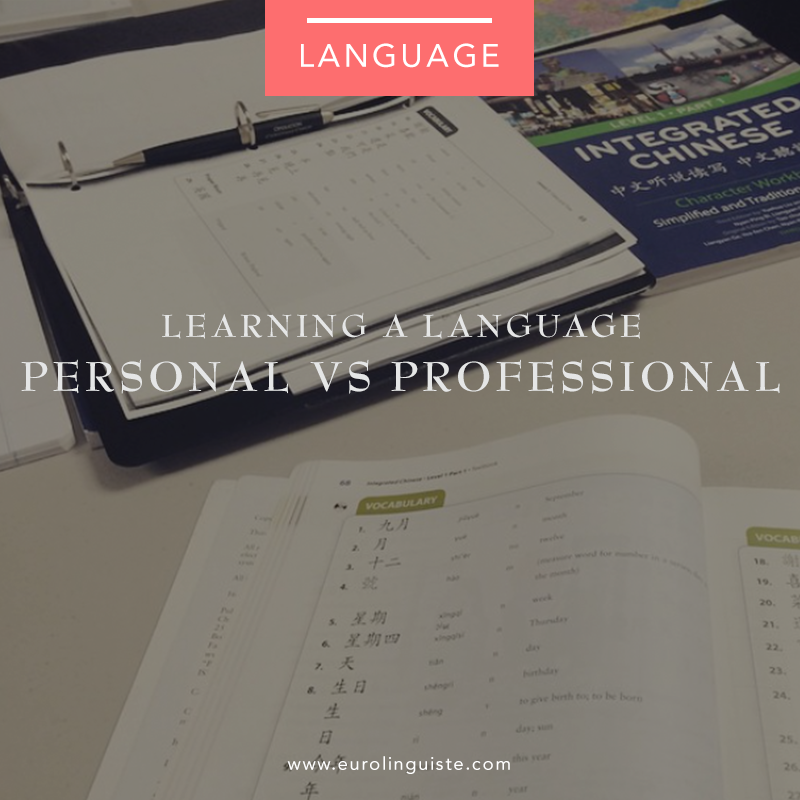Learning a Language | Personal vs. Professional

My name is Shannon Kennedy and I'm the language lover,…
Hey all, today I’m excited to share a guest post with you from Matt Baster of Language Reach. I also recently wrote an article for them available over at their blog on 5 reasons to learn a language for travel with 10 resources to help you do just that.
Someone once said that ‘to speak another language is to possess another soul’, a sentence which has engraved itself into my memory and accompanied me throughout my language learning experience.
Speaking another language opens new doors wherever you go, it helps you to understand different cultures and traditions. Being able to speak a new language will not only allow you to ask for directions or order dessert, but it will also help you experience matters that you may not be able to as a monolingual speaker.
As you can imagine, communicating with a person in a different part of the world is becoming more and more possible, and it isn’t surprising that people have begun taking advantage of this. Businesses that want to grow in other regions of the world cannot rely on using one language to target potential clients that speak numerous other languages. And while people still learn languages for personal reasons, in today’s day and age, speaking more than just one language is something of an employer’s ‘Holy Grail’. Among other things, companies and organisations are particularly interested in seeking bilingual potentials as it helps in many areas of the business, from daily tasks to long term prospects.
In fact, many people use their language learning skills to make a living, such as professional translators and interpreters. They use their extraordinary language skills to assist in the languages industry, working in all types of sectors. I have in the past worked as a translator myself and therefore I have experienced first-hand the hard work that goes into acquiring the expertise needed in order to be successful in this industry. It takes years of dedication, specialised qualifications and further experience on the job, so this is a complex industry to break into.
Where to Start
The main and most apparent difference between being able to speak a language for personal reasons and for professional use as a translator, is by obtaining legally recognised qualification. A person who wants to communicate with friends and family or when on holiday can use a number of different sources, whether it’s the internet, books or group classes. This type of language learner doesn’t need to have certified credentials or pass specified exams and assessments – once you’ve grown confident with your language skills, the world is your oyster, and you can make use of your new skill. Professional translators such as the ones who work for Language Reach London, on the other hand must complete years of education and have completed specified exams, before being able to work in the industry. Majority of translators complete either a full degree in a language related subject and/or another recognised qualification, such as the one from The Institute of Translation and Interpreting (ITI). This usually takes at least a few years beyond the time spent learning the language itself.
The Need to Be Fluent
Another difference between learning a language for a personal reason or a professional one is the level at which a person is able to speak the language. Professional translators not only need to speak a language fluently, they need to go beyond that. There are times when a word exists in one language, but there is no literal translation into another language. Being a professional linguist obligates you to recognise this and be able to substitute the word without losing its meaning, which can affect not only the whole sentence, but also the entire document!
Responsibility
On that note, responsibility also plays a significant part in being a professional language translator. For example, medical translators bare the accountability for translating the names of medicines, medical treatments, drug elements etc. Legal translators must understand legal jargon used in different countries, while being able to represent their client accurately and precisely. Not only can this be time consuming but it can also be extremely stressful.
Expertise
A lot of clients who contact our translation agency require translations for specific business industries, whether it’s legal, marketing, technical, financial or in the medical sector. This necessitates the importance to work with translators who are not only native, fluent speakers of the target language, but also have first-hand experience within the industry given. On the other hand, people who learn a language as a hobby don’t have to fall to the pressures of using specialised knowledge while communicating, making it relatively simpler than using complex jargon specified to an industry such as the medical one for example. A translator’s job is to make communication possible, so if it’s a technical translation that is wanted, a translator is required to use the appropriate words to translate just about anything, and this includes for example explaining in detail the difference between bolts and screws!
As you can see, being a professional translator takes much more than just being able to speak two languages, even fluently. You must complete a number of qualification and undergo different examinations before you can even think about using your skill to earn a living. But remember, people who love languages and become professional translators, despite the stress, tight deadlines and unhealthy amounts of coffee, never look back!

My name is Shannon Kennedy and I'm the language lover, traveler, and foodie behind Eurolinguiste. I'm also the Head Coach of the Fluent in 3 Months Bootcamp, co-founder of Women in Language, and former Resident Polyglot at Drops.



